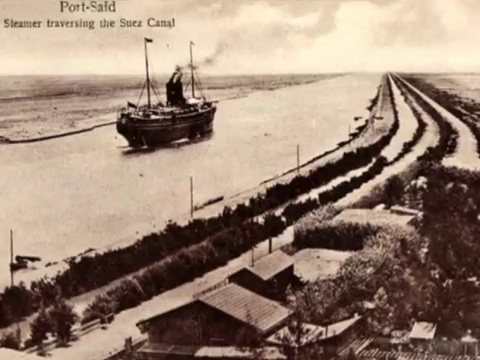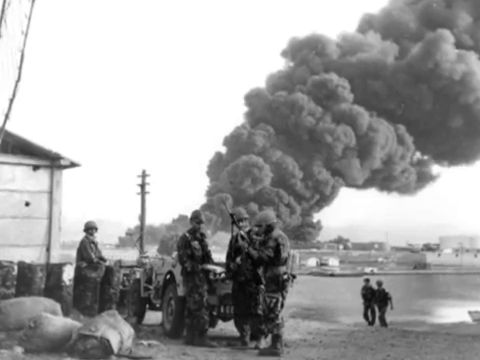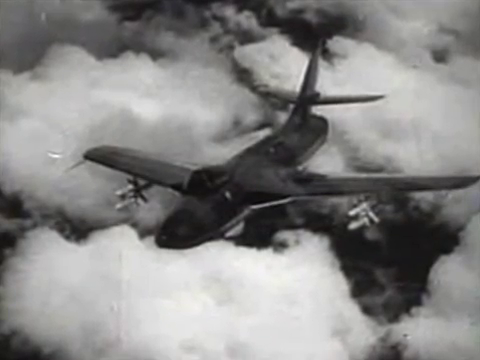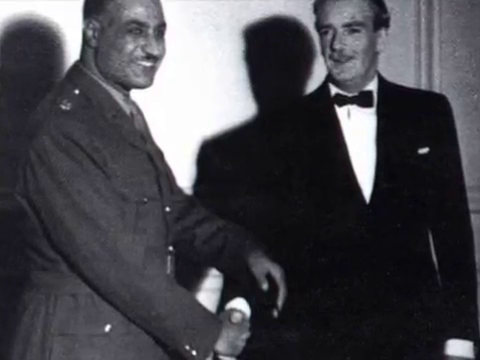The Nationalism of the SUEZ CANAL – 1956
The Suez War of 1956 was a direct result of Nasser's efforts to weaken Egyptian economic dependence on the West. Therefore the war was an aggressive imperialist war on the part of Britain, France and Israel and a war of liberation for Egypt. In 1955 Nasser's government bought a vast quantity of Czech and Russian arms, less to attack Israel than as a gesture of defiance against the West, which still - in the form of British garrisons - lay astride the Suez Canal.
 Shortly
afterwards Nasser announced Egypt's recognition of the communist regime in
Peking as the true government of China instead of the Western- backed
Nationalist regime on Taiwan. The result of the communist arms deal and the
recognition of Peking was that Britain and the United States in 1956 withdrew
their promised loans for construction of the Nile High Dam at Aswan. Nasser's
reaction was to announce the nationalization of the Suez Canal, hitherto owned
and managed by an international company dominated by French and British
business interests. Nasser declared he would build the dam with canal revenues,
and would make the imperialists 'choke in their rage'. The imperialists
responded by war.
Shortly
afterwards Nasser announced Egypt's recognition of the communist regime in
Peking as the true government of China instead of the Western- backed
Nationalist regime on Taiwan. The result of the communist arms deal and the
recognition of Peking was that Britain and the United States in 1956 withdrew
their promised loans for construction of the Nile High Dam at Aswan. Nasser's
reaction was to announce the nationalization of the Suez Canal, hitherto owned
and managed by an international company dominated by French and British
business interests. Nasser declared he would build the dam with canal revenues,
and would make the imperialists 'choke in their rage'. The imperialists
responded by war.
 The first to
attack were the Israelis, in October 1956. For some years the Israelis had had
to face guerilla raids from the Egyptian-protected Gaza Strip in south
Palestine, where thousands of Palestinian Arab refugees had lived in makeshift
camps since the creation of Israel in 1948.
The first to
attack were the Israelis, in October 1956. For some years the Israelis had had
to face guerilla raids from the Egyptian-protected Gaza Strip in south
Palestine, where thousands of Palestinian Arab refugees had lived in makeshift
camps since the creation of Israel in 1948.
In 1954-5 Nasser had organized the fedayeen commandos (usually Palestinians but sometimes Egyptians) to conduct raids on vital installations in Israel. Nasser did not at this time plan an all -out war with Israel to liberate Palestine. He believed it would take many years of modernization and training before the Egyptian armed forces would be ready to attempt that task.
 The fedayeen
raids were designed to stave off the demand in Egypt for an all-out war with
Israel for which Egypt was unprepared, as well as to express a gesture of
Egyptian support for the Palestinians. However, the Israelis misunderstood the
purposes of the fedayeen attacks and the communist arms deal, and came to
believe erroneously that these two events heralded an imminent Egyptian all-out
attack on Israel. The Israelis felt they must forestall such an attack by a
preventive war. After secret assurances of support from France and Britain,
Israeli forces attacked Egypt on 29 October 1956 and penetrated deep into the
Sinai peninsula.
The fedayeen
raids were designed to stave off the demand in Egypt for an all-out war with
Israel for which Egypt was unprepared, as well as to express a gesture of
Egyptian support for the Palestinians. However, the Israelis misunderstood the
purposes of the fedayeen attacks and the communist arms deal, and came to
believe erroneously that these two events heralded an imminent Egyptian all-out
attack on Israel. The Israelis felt they must forestall such an attack by a
preventive war. After secret assurances of support from France and Britain,
Israeli forces attacked Egypt on 29 October 1956 and penetrated deep into the
Sinai peninsula.
A few days after the Israeli invasion of Egypt, Anglo-French forces landed in the Suez Canal Zone on 5 November 1956. Britain had recognized the force of Asian nationalism in conceding independence to India in 1947, but chose to ignore Egyptian nationalism in 1956.
 Britain was
determined to hold on to the Suez Canal. Her reasons were not as in the past,
reasons of strategy, Suez being the shortest route between Britain and British
India, for in 1956 India was no longer British. Instead, in 1956 Britain
regarded Suez as its shortest route to the oil-producing states of the Persian
Gulf-France, too, in 1956 was heavily dependent on Persian Gulf oil via Suez -
at a time when Algerian and Libyan oil supplies were as yet hardly exploited.
Britain was
determined to hold on to the Suez Canal. Her reasons were not as in the past,
reasons of strategy, Suez being the shortest route between Britain and British
India, for in 1956 India was no longer British. Instead, in 1956 Britain
regarded Suez as its shortest route to the oil-producing states of the Persian
Gulf-France, too, in 1956 was heavily dependent on Persian Gulf oil via Suez -
at a time when Algerian and Libyan oil supplies were as yet hardly exploited.
France's main motive, however, for the Suez invasion was to strike a blow at Nasser the pan-Arab nationalist who had provided moral, Financial and military aid to the FLN freedom fighters in French-ruled Algeria. Britain, too, was angry at Cairo Radio's strong expressions of support for anti-colonial rebels such as the EOKA in Cyprus and the Mau- Mau in Kenya.
After two days the American President Eisenhower and Secretary of State Dunes, afraid that the Anglo-French invasion would drive Egypt to request Soviet military assistance in men as well as weapons, worked with the Soviet Union to impose a ceasefire and thus halt the Anglo-French advance.
 The Suez War was a military defeat but a great
diplomatic, political and moral victory for Egypt. The British Prime Minister,
Eden, had believed the Anglo-French invasion would inspire the Egyptians to
depose Nasser; instead it united them behind Nasser and his nationalist and
socialist regime. The war demonstrated the new sense of commitment of the
people to the Revolution of 1952. The soldiers who manned the anti-aircraft
batteries in Sinai remained in their posts with immense courage and many of
them were killed.
The Suez War was a military defeat but a great
diplomatic, political and moral victory for Egypt. The British Prime Minister,
Eden, had believed the Anglo-French invasion would inspire the Egyptians to
depose Nasser; instead it united them behind Nasser and his nationalist and
socialist regime. The war demonstrated the new sense of commitment of the
people to the Revolution of 1952. The soldiers who manned the anti-aircraft
batteries in Sinai remained in their posts with immense courage and many of
them were killed.
Civilians refused to panic and in Port Said several hundred were killed in resisting the British invasion. The Egyptian army was driven out of Sinai and lost three thousand men killed in battle against the Israelis and vast quantities of equipment. Yet the peace terms imposed by the two super-powers in the UN Security Council led to complete Egyptian control over the Suez Canal and removal of the British military base in the Canal Zone.
Moreover, all British and French property in Egypt was seized. Nasser's diplomatic and political triumph over Britain was to some extent offset-by the loss to Israel of the military post at Sharm as-Shaikh in southern Sinai at the Straits of Tiran guarding the entrance to the Gulf of Aqaba from the Red Sea (thus enabling Israeli shipping to use the port of Eilat).
But on the other hand Israel was compelled by the Security Council to withdraw from the rest of Sinai and even from Gaza. The Gaza Strip with its Palestinian Arab inhabitants was now guarded by the United Nations Emergency Force, a peacekeeping unit. Thus Egypt had less frontier with Israel to guard.
Nasser's victory over Britain and France immeasurably boosted his status as the leader of the new pan-Arab nationalist movement of the 1950s.
Nasser became overnight the hero of the Arab world and his picture appeared in public places and private homes almost everywhere from Morocco to Muscat.
The euphoria of the Suez triumph was a major factor in the creation of the Union of Egypt and Syria in the United Arab Republic just over a year later. The Suez affair also helped to establish Nasser more firmly as one of the leaders of the non-aligned or neutralist bloc of nations.
Already in 1955 Nasser had attended the Bandung Conference of Third World states in Indonesia, where he became strongly attracted to the neutralist ideas of the Indian Prime Minister Nehru.
Another Egyptian triumph as a result of the Suez War was the successful operation of the canal after the departure of the British. Mahmoud Yunes, an efficient and enterprising young officer engineer, took charge and revenue from tolls rose steadily, as more and bigger ships used the canal. In nine years they more than doubled.
National Movements and New States in Africa